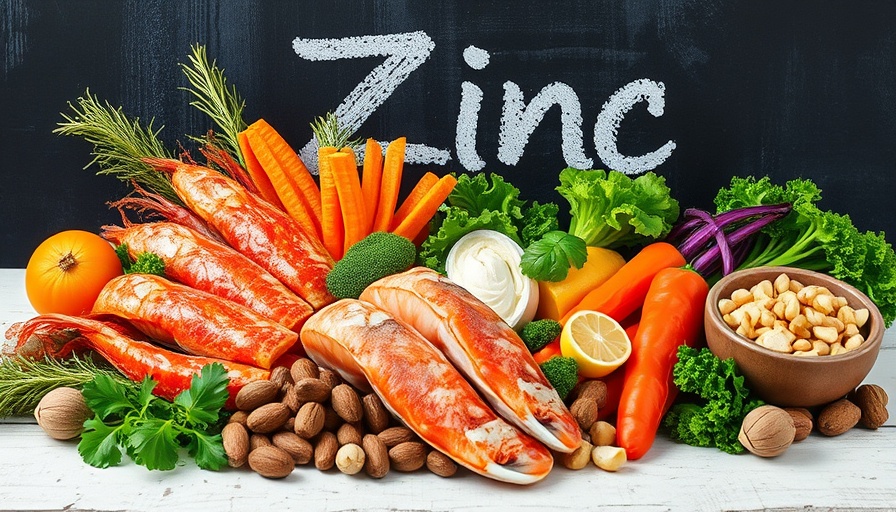
Unlocking the Mineral: The Power of Zinc for Your Health
Are you ready to elevate your health with a single mineral that packs a punch? Look no further than zinc, a powerhouse nutrient essential for your wellbeing. Whether you’re aiming to boost your immune system, support growth, or enhance cognitive function, understanding zinc's pivotal role can help you make informed dietary choices.
The Many Benefits of Zinc
Zinc is far more than just a mineral; it serves as a vital component in numerous physiological processes. Acting as a cofactor for many enzymes, it supports metabolism, DNA synthesis, and protein production. Its major contribution to your immune system cannot be overstated—resulting in better overall defense against infections.
Research indicates that zinc is crucial for T cell development. These immune cells work tirelessly to identify and eliminate pathogens, ensuring your body stays healthy. Regular intake of zinc can significantly reduce the severity of infections, thereby lowering the risk of chronic diseases.
Are You Getting Enough Zinc? Symptoms of Deficiency
Surprisingly, around 17% of the global population suffers from zinc deficiency, often due to dietary inadequacies or malabsorption issues. Common symptoms include impaired immunity, delayed wound healing, disturbances in taste and smell, and neurological problems. In severe cases, deficiency can lead to stunted growth and cognitive impairment, particularly detrimental to children during their physical development.
For parents, recognizing these symptoms in your children is crucial. A child lacking adequate zinc may face long-term health challenges—delays in puberty, impaired growth, and increased health risks are all potential outcomes of deficiency.
Best Food Sources of Zinc to Incorporate into Your Diet
Fortunately, replenishing your zinc levels can be achieved with delicious and nutritious food sources. Here’s a closer look at some of the best options:
Animal-Based Sources
- Oysters: Undoubtedly one of the richest sources, providing over 70 mg of zinc per serving.
- Red Meat: Beef and lamb offer 4-5 mg of easily absorbable zinc.
- Poultry: Chicken and turkey are great options, supplying around 2-3 mg of zinc.
Plant-Based Sources
- Legumes: Beans, lentils, and chickpeas provide 1-2 mg of zinc per serving, along with essential fiber.
- Nuts and Seeds: Pumpkin seeds and cashews add 1-2 mg of zinc, plus healthy fats.
Maximizing Zinc Absorption: Tips for Everyone
To make the most of your zinc intake, consider these simple tips:
- Combine Zinc-Rich Foods with Protein: Pairing zinc sources with protein can enhance absorption.
- Avoid Excessive Intake of Phytates: Found in whole grains and legumes, these can inhibit zinc absorption. Soaking these foods can help.
- Consider Supplementation: If dietary sources are lacking, a zinc supplement can help close the gap, but consult with a healthcare professional first.
Local Context: Why Zinc Matters in Massachusetts
In Massachusetts, with its bustling lifestyle, it's easy for residents to overlook their nutrient intake. Awareness of dietary sources of zinc can make a significant impact on community health. Encouraging local food markets to source zinc-rich options can help foster a culture of nutrition awareness, paramount for maintaining health.
Final Thoughts on Zinc: Your Key to Wellbeing
Understanding zinc's multitude of benefits and ensuring its adequate intake can empower you towards better health. Don't let deficiency hold you back—incorporate zinc-rich foods into your daily meals and watch as your body thanks you! Remember, improved immunity, better growth, and enhanced cognitive function are all within your reach.
To further explore holistic health options and tips for incorporating zinc into your diet, consider visiting local wellness classes or community events focused on nutrition. After all, knowledge is power, and good health is a journey worth pursuing.
 Add Row
Add Row  Add
Add 




Write A Comment